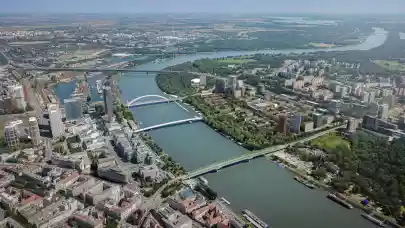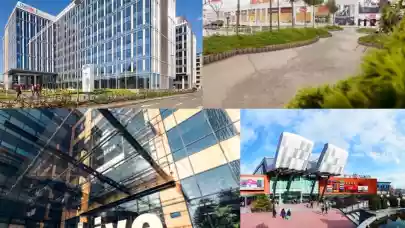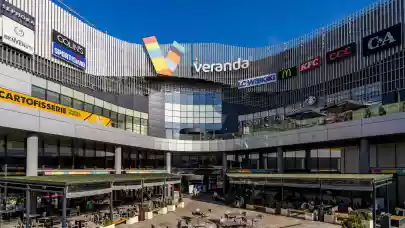
In the foreseeable future, the centre of Bratislava should expand to the right bank of the Danube River. The key project, Nové Lido by J&T Real Estate, entered the first part of permitting, informs Yimba.sk.
JTRE through its SPV Popper Capital proceeded with an important step in the development of the territory. It submitted the project documentation for environmental impact assessment (EIA). It already reveals the concept design and capacity parameters of Nové Lido in closer detail. What is important is that EIA assessment is not dependent on the current state of the city master plan.
The urban design of the territory shows a mixed-use, primarily housing, administration and commercial amenities, complemented by public spaces. The area is divided into several building blocks. Housing will be located in the first line of development towards the Danube and the second line between the central park and the main boulevard. The office part is designed in the southern part near the highway.
The investor declares that Nové Lido will be ecological and certified in the BREEAM Communities system. Renewable energy sources are to be used, rainwater will be collected, pedestrian, bicycle and public transport will be of great importance, and a negative impact on underground water flow should be avoided.
Within the district, 10.250 parking spaces will be built, of which 9.950 will be in underground garages and 300 on the ground. They will serve approximately 6.000 apartments, which equals 282.000 sqm of living space and 18.000-20.000 jobs in 267.000 sqm of office and service space.
Several leading domestic and foreign teams are working on the architectural design. Jakub Cigler Architekti developed the initial concept. Compass and Marko&Placemakers have later revised it. However, the developer also collaborated with the Gehl Architects and other experts.
The developer assumes that the construction of the entire Nové Lido will take place between 2026 and 2042. The estimated costs will reach €1.4 billion.



